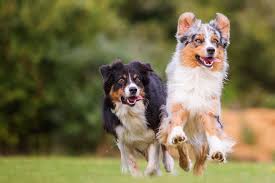
Is it safe for dogs to eat rib bones? Cooked bones can splinter and cause severe internal damage to dogs. Rib bones from table scraps are absolutely off-limits, along with any other cooked bones. Raw bones pose potential risks, and should only be consumed under careful observation.
What kind of bones are safe for dogs? Raw bones are considered safer than home-cooked because they don’t splinter as easily. Raw bones like chicken, turkey, lamb, beef, or even oxtail can be safer bone options for your pet. Unlike home-cooked bones which are drained of their nutrients, raw bones can be a natural source of calcium and phosphorus.
What if a dog eats a pork bone? If your dog ate pork bones, we recommend you contact your veterinarian immediately. A nice cut of pork makes for a delicious meal. Whether you’re chowing down on pork chops or smoked ribs on the barbeque, you may find yourself with leftover pork bones at the end of your feast.
Can you give dogs baby back rib bones? Can Dogs Eat Baby Back Rib Bones? Rib bones from table scraps are absolutely off-limits. Cooked bones can splinter and cause severe internal damage to dogs.